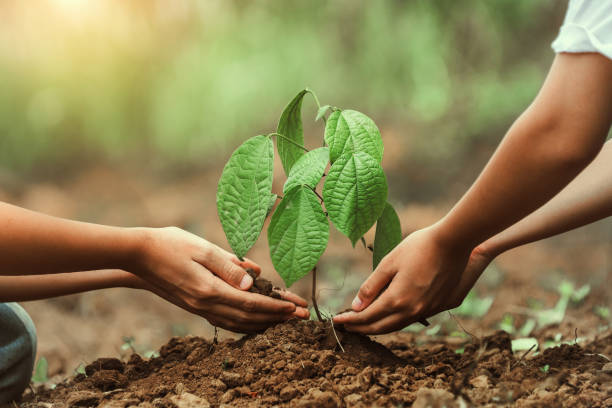

When it comes to Tree Planting in Tulsa, OK, choosing the right trees for your local area and climate is essential for both the health of the trees and the overall aesthetic and functionality of your landscape. Planting the wrong type of tree can lead to poor growth, pest problems, and increased maintenance needs, while the right tree can thrive for years, providing shade, beauty, and environmental benefits. In this article, we will explore some of the best tree species to plant in Tulsa’s climate, along with tips for proper care and maintenance.
Tulsa, OK, falls within USDA hardiness zones 6b and 7a, which means the area experiences a mix of hot summers and cold winters. This climate requires trees that can tolerate both heat and freezing temperatures. In addition to temperature, factors such as soil type, rainfall, and exposure to the sun play a crucial role in selecting the right tree species for planting in your yard. Before you begin your tree planting project, it’s important to consider these local climate characteristics.
Native trees are often the best choice for Tulsa, as they are adapted to the local climate and soil conditions. These trees generally require less maintenance and are more resistant to pests and diseases compared to non-native species. Here are some of the best native trees for planting in Tulsa, OK.
The Red Maple is one of the most popular trees for planting in Tulsa, as it thrives in a wide range of soil types and can tolerate both wet and dry conditions. Known for its vibrant red foliage in the fall, the Red Maple is a fast-growing tree that adds both beauty and shade to any landscape. Its adaptability to different soil types makes it a perfect choice for residential properties.
The Bur Oak is a hardy tree that is well-suited to Tulsa’s hot summers and cold winters. With its large, lobed leaves and strong trunk, this tree can grow to be quite large, making it an excellent choice for providing shade in larger yards. The Bur Oak is drought-tolerant once established and is also resistant to many pests and diseases. Its deep roots make it an ideal tree for stabilizing soil and preventing erosion.
The Eastern Redbud is a small to medium-sized tree that is known for its stunning pink to purple flowers that bloom in early spring. It is well-suited for smaller yards and urban environments. This tree thrives in well-drained soil and can tolerate a variety of sun exposures, from full sun to partial shade. The Eastern Redbud is an excellent choice for homeowners looking to add color and visual interest to their landscape.
Black Walnut trees are native to the Tulsa area and are prized for their dark, richly colored wood and large size. These trees can reach impressive heights and provide excellent shade. However, it’s important to note that Black Walnut trees produce a substance called juglone, which can be toxic to some plants. Therefore, it’s important to plan your landscape around these trees to avoid planting anything that may be sensitive to juglone.
The Flowering Dogwood is another excellent tree species for Tulsa, known for its beautiful spring blossoms and vibrant fall color. This small to medium-sized tree prefers partial shade and well-drained soil, making it ideal for planting under larger trees or in more shaded areas of your yard. It also attracts pollinators, such as bees and butterflies, making it an excellent choice for gardeners interested in supporting local wildlife.
While many trees are known for their seasonal beauty, some trees are great choices for year-round interest, offering something unique in every season.
The American Holly is a broadleaf evergreen that retains its glossy green leaves throughout the year. It also produces bright red berries in the winter, which can add color to your landscape during the colder months. This tree does well in Tulsa’s climate and prefers well-drained soil with moderate moisture. It can be used as a focal point in your yard or as part of a privacy hedge.
Pecan trees are not only valuable for their shade but also for their nuts, which are prized for baking and cooking. The Pecan tree thrives in Tulsa’s warm summers and is highly resistant to drought once established. It’s a large tree, so it is best suited for larger yards. Pecan trees also attract wildlife, providing food for squirrels and birds.
Tree Service is important to follow the proper steps to ensure the best results. A healthy, well-planted tree will require less maintenance and provide long-term benefits. Consider the following tips:
Tree planting in Tulsa, OK, offers many benefits, from providing shade and beauty to supporting local wildlife and improving air quality. By selecting the right tree species for the local climate and following proper planting and maintenance techniques, you can ensure the long-term health and success of your trees. Whether you’re planting native trees like the Red Maple or the Bur Oak, or adding year-round interest with the American Holly, the right choices will help you create a beautiful and sustainable landscape. Don’t hesitate to contact a local tree service to assist with tree planting, inspection, and maintenance, ensuring your trees thrive for years to come.